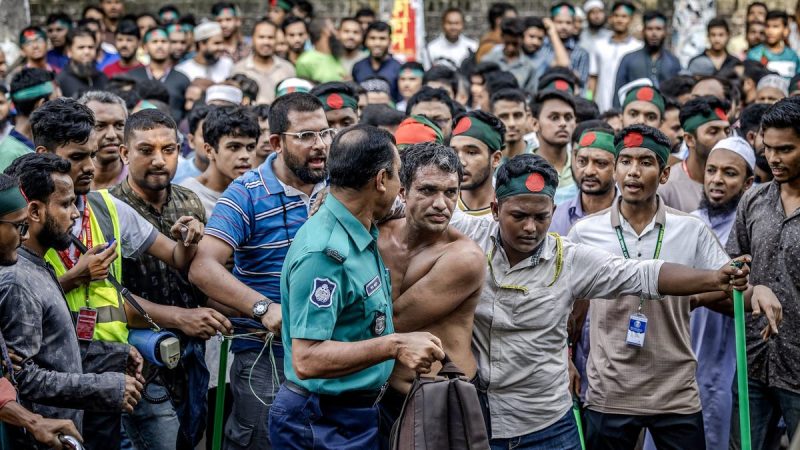In the wake of the government’s collapse in Bangladesh, minority groups have found themselves particularly vulnerable to various forms of violence and mistreatment. The vacuum created by the political crisis has led to these groups becoming convenient scapegoats for the ensuing chaos and unrest. This situation has highlighted deep-seated social issues and fractures within Bangladeshi society that require urgent attention and resolution.
One of the most disturbing trends that have emerged in the aftermath of the government’s collapse is the escalation of violence targeting minority groups. Reports of targeted attacks, hate crimes, and discrimination against religious and ethnic minorities have been on the rise. The breakdown of law and order, coupled with the lack of a functioning government apparatus, has emboldened extremist elements to carry out their nefarious agendas against vulnerable communities.
The Rohingya community in particular has faced widespread violence and persecution in the wake of the government’s collapse. Already marginalized and oppressed, the Rohingya people have been subjected to further atrocities, including killings, forced displacement, and sexual violence. The absence of a stable government has left them without protection or recourse, making them easy targets for those seeking to exploit the power vacuum for their gain.
Another minority group that has borne the brunt of the chaos following the government’s collapse is the indigenous communities in Bangladesh. These groups have long struggled for recognition and rights within the country, and the current crisis has only exacerbated their plight. Land grabs, forced evictions, and intimidation tactics have been used against indigenous communities, further marginalizing them and depriving them of their ancestral lands and resources.
In addition to physical violence, minority groups in Bangladesh have also faced systemic discrimination and mistreatment in various aspects of their daily lives. Access to essential services such as healthcare, education, and employment has become increasingly challenging for these communities, as prejudices and biases continue to permeate society unchecked. The breakdown of governance and the rule of law have only served to entrench these disparities further, leading to a cycle of inequality and injustice.
It is imperative that the international community and responsible authorities take swift action to address the plight of minority groups in Bangladesh in the aftermath of the government’s collapse. Concrete measures must be taken to protect these vulnerable communities from further harm and to ensure their basic rights and dignity are respected. Initiatives to promote intercommunal dialogue, reconciliation, and social cohesion are essential to building a more inclusive and equitable society for all Bangladeshis.
In conclusion, the violence and mistreatment faced by minority groups in Bangladesh following the government’s collapse serve as a stark reminder of the urgent need to address deep-seated societal issues and prejudices. The current crisis presents an opportunity for the country to rebuild its social fabric on a foundation of respect, tolerance, and justice for all its citizens, regardless of their background or identity. Only through concerted efforts and collective action can Bangladesh move towards a more inclusive and harmonious future for all its people.


































